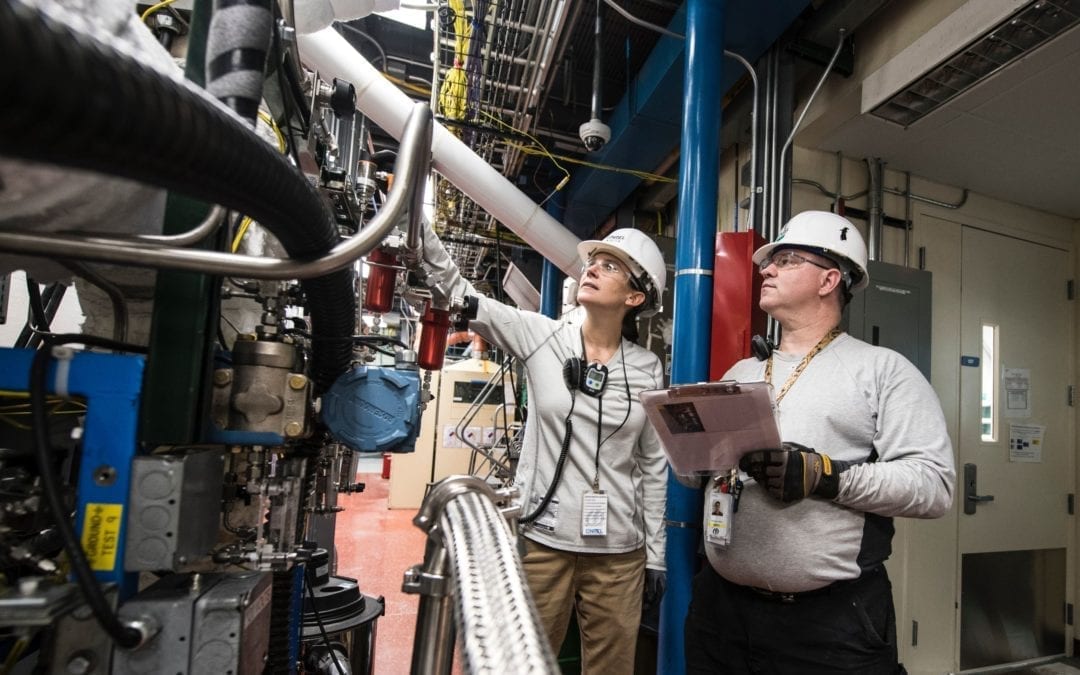The cart is empty!
The Application of bismuth based alloys to address Oilfield challenges” by, Paul Carragher (BiSN), Lance Underwood (BiSN) and Angus MacLeod (BP)
Aberdeen Branch
The branch held its 4th event of the 2019/2020 session at its usual venue, RGU, with a presentation on “The Application of bismuth based alloys to address Oilfield challenges” by, Paul Carragher (BiSN), Lance Underwood (BiSN) and Angus MacLeod (BP).
This was a highly successful joint presentation with IOM3 – The Institute of Materials, Metals and Mining, which has recently celebrated its 150 year anniversary. The BiSN speakers discussed in detail their Wel-Lok sealing technology which utilises a unique combination of a thermite powered chemical heater and a bismuth based alloy to deliver an efficient down hole sealing capability, using standard oilfield deployment methods.
The thermite heater provides the energy to melt the bismuth alloy in situ, allowing the heavy liquid alloy to flow by gravity to the desired location. As the bismuth alloy cools, it expands on solidification to provide a seal. Paul Carragher started BiSN in 2010 with the insight to develop new and innovative sealing solutions for the oil & gas industry, and explained the use of bismuth in downhole sealing applications
Lance Underwood, Principal Engineer at BiSN Oil Tools, who has has over 30 years of experience in the industry, then provided further insights into the development of new technologies for plugs for oil wells, covering materials selection, downhole corrosion control and long-term corrosion testing programmes. He illustrated some of the rigorous testing requirements for downhole oilfield tools including bits, mud-motors, turbo-drills, under-reamers, hammers, and laser drilling.
Angus MacLeod (Senior Intervention Engineer with BP), with 22 years Oil and Gas industry experience, then followed this up with some actual case histories from BP operations worldwide, where this technology has been applied offshore, to shut off water production in open-hole gravel pack completions, as well as the work being done to qualify the alloys, as a permanent well abandonment material. In his current role, Angus is responsible for developing new well technology as part of BP’s Upstream Technology Group, primarily focussed on “Life of Well Surveillance” and “Plug & Abandonment”. The event generated a huge level of interest and many questions were asked, which can be found, together with the answers, on the branch website.
At the close of the meeting, the branch chairman, presented all speakers with a Certificate of Appreciation from the branch.
Full details of future branch events can be found on the diary page of this magazine and on the website, or by contacting: ICorrABZ@gmail.com.
Copies of the majority of past branch presentations can be found at: https://sites.google.com/site/icorrabz/resource-center and a photo gallery for these events is at, https://sites.google.com/site/icorrabz/event-gallery
Particular attention is drawn to the 2020 Corrosion Awareness Day to be held on Tuesday 25th August at, Petrofac Training Centre, Forties Road, Montrose, Angus, DD10 9ET. The day will include several practical demonstrations with teaching, this year themed on fabrication and external corrosion management. Further Details about this can be obtained from the branch Chair: Stephen Tate, email: Stephen.Tate@external.total.com


